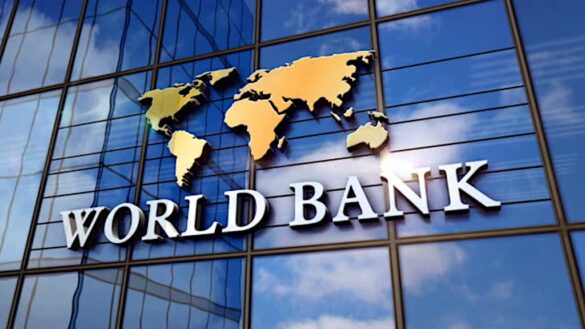The World Bank has reported that, amid rising inflation, low labour income has driven approximately 14 million Nigerians into poverty in 2024.
According to its latest “Macro Poverty Outlook: Country-by-Country Analysis and Projections for the Developing World,” nearly 47 percent of Nigeria’s population now survives on less than $2.15 per day—the international poverty line.
The report explains, “Labour incomes have not kept pace, pushing an additional 14 million Nigerians into poverty in 2024. An estimated 47 per cent of Nigerians now live in poverty (or below the international poverty line of $2.15).”
The combination of surging inflation, limited income growth, and high population expansion is worsening poverty rates across the country.
To address the crisis, the Nigerian government has introduced a temporary cash assistance program targeting 15 million low-income households.
Under this initiative, each household will receive ₦75,000 in three installments, benefitting approximately 67 million Nigerians.
The World Bank projects that without substantial reforms, poverty in Nigeria could rise to 52 percent by 2026. It recommends policies focused on inflation protection and enhancing opportunities for more productive employment to help Nigerians lift themselves out of poverty.
The World Bank added, “Poverty is estimated at 52 per cent in 2026. Reforms to protect the poorest against inflation and boost livelihoods through more productive work are key for Nigerians to escape poverty. A tight monetary stance while avoiding reliance on ways and means remains crucial for moderating inflation.”
Additionally, it urged the Central Bank of Nigeria to maintain tight monetary policies to combat inflation, with the monetary policy rate having increased by 850 basis points from February to September 2024.
Despite these measures, inflation continues to erode household purchasing power, aggravating the challenges for millions.
The World Bank stressed the need for continued reforms, noting that “While macro stabilization is essential and currently underway, by itself it is insufficient to enable Nigeria to reach its growth potential. Sustained efforts and the establishment of a credible track record are necessary to achieve sustained progress.
“Economic growth has struggled to keep pace with population growth, contributing to poverty exacerbated by double-digit inflation.”
It emphasized that consistent and credible reforms are essential for Nigeria to achieve lasting economic growth and stability, adding that current economic growth lags behind population growth, exacerbating poverty amid high inflation rates.
In a comprehensive call to action, the World Bank urged a broad approach to build resilience and establish long-term solutions to poverty for Nigeria’s millions of affected citizens.


